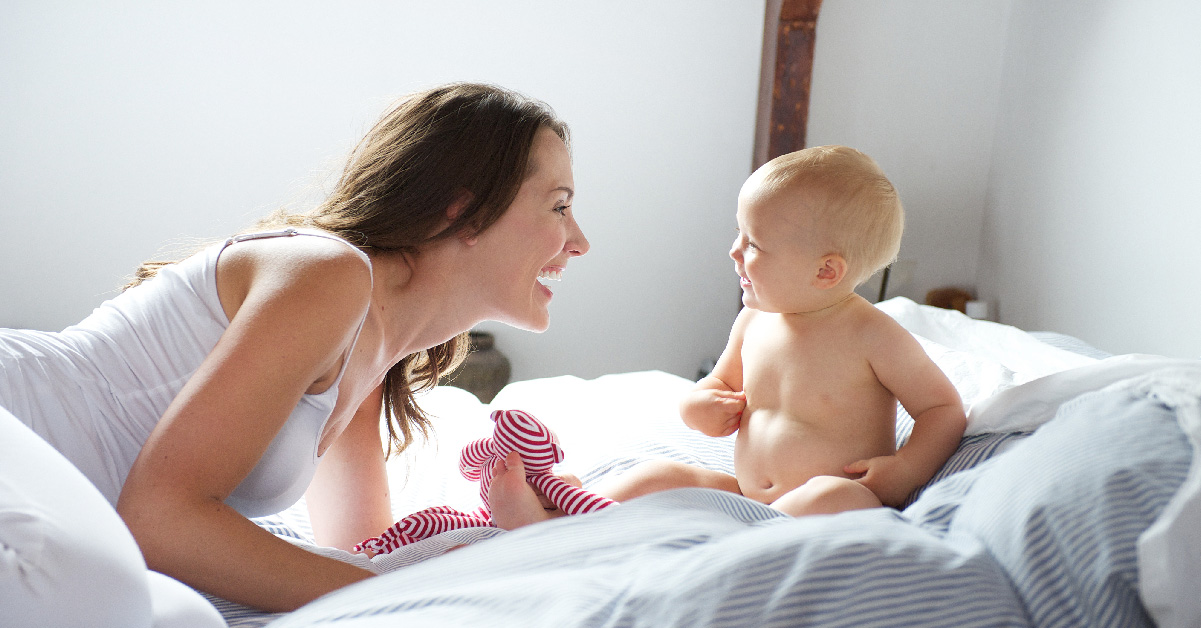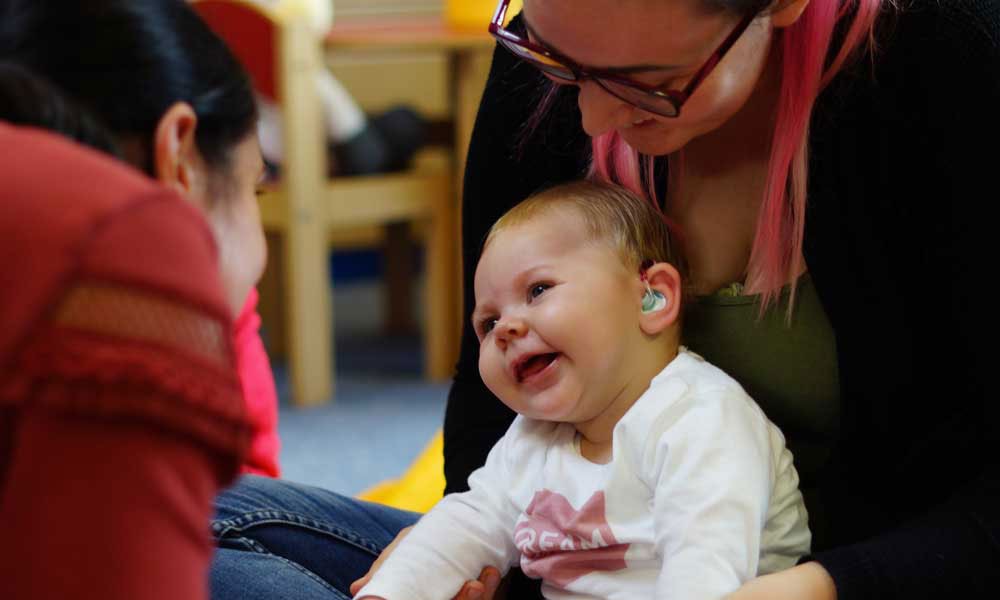You've just encountered a new addition to your life, and the excitement is palpable. This newfound connection has quickly become the highlight of your world.
Whether or not this special someone can engage in conversation, the joy derived from simply gazing at them is unparalleled. However, as the desire to share experiences grows, you yearn to embark on meaningful activities together, fostering a deeper connection.
Yet, there's a crucial factor to consider – your new companion needs time to acclimate and absorb their surroundings. In this context, we're referring to your newborn. Depending on their developmental stage, a myriad of activities tailored to their growth can be explored.
Engaging in play not only forges a strong connection between you and your baby but also imparts a sense of security and love, even if they cannot express it verbally. Their actions unmistakably communicate the profound impact of these shared moments.
To guide you in this journey, here are some daily activities to incorporate into your routine, enhancing your baby's development and strengthening the bond between you and your little one. Check out the CDC's developmental milestones to understand your baby's growth stage better.

Activities to Foster Language and Communication Development
1. Embrace Baby Talk
While baby talk may seem whimsical, its impact is profound. Speaking slowly, repeating words, exaggerating facial expressions, and adopting a higher pitch captures your baby’s attention, actively contributing to the development of their language skills.
2. Share Pictures and Narrate
Utilize an old photo album or a children’s book with captivating illustrations, steering clear of phone or tablet screens whenever possible. Point to each image, providing insightful explanations to your child. Rest assured, they will grasp key concepts, evident when they eagerly point to familiar images you've discussed before.
3. Serenade with Nursery Rhymes
Whether classic nursery rhymes or your personal favorites, singing to your baby holds great significance. Your soothing voice not only provides comfort but also hones your baby’s hearing and listening skills. The repetitive nature of singing helps embed the melodies in their memory, eliciting smiles every time you start from the beginning.
4. Read Aloud to Your Baby
Incorporating bedtime reading into your routine works wonders. This dedicated cuddle time, coupled with the comforting resonance of your voice, establishes a soothing bedtime ritual. Unbeknownst to your little one, books become synonymous with sleepy time, creating a tranquil and enjoyable experience.

Sensory and Physical Development Activities
5. Tracking Objects
More than just an entertaining baby activity, object tracking serves as an excellent exercise for eye movement and sight development. Given that your baby's vision is still developing, engaging in this play encourages them to coordinate eye movements and enhances focus. Simply take a favored item, perhaps a toy, and slowly move it within their sight range.
Learn more about infant vision from birth to 24 months.
6. Tummy Time
Lay your baby on a blanket on the floor, bed, or even your chest. Call them from different sides to prompt head movement and wiggling. This not only strengthens their neck, shoulders, and arms but also fosters sound perception as they identify the source of various sounds. Begin with 2 or 3 short sessions daily, lasting 3-5 minutes each, and gradually extend as your baby grows.
7. Puppet Play
Introduce puppet play with a toy like the Montessori Baby Cloth Book – a misnomer that makes puppet play engaging. Insert your hand, create funny voices, move it around, and share laughs with your baby. Many babies find puppets amusing for reasons unknown.
8. Bubble Fun
Whether in the bath, living room, or outdoors, blowing and poking bubbles can be messy but is excellent for hand-eye coordination and dexterity. Take precautions to ensure soap doesn't reach anyone's eyes.
9. Rattle Toy Interaction
Rattles, a timeless favorite for babies, offer more than just an enjoyable sound. Ideal for grasping and motor skill development, they also teach cause and effect. Babies learn that their actions produce the rattling sound, a fundamental realization.
10. Permanence Box Play
Introduce the Montessori Wooden Box Toys once your baby can sit independently. These Montessori toys for babies explain the concept that things exist even when out of sight. The accompanying ball aids in finger and hand muscle development and enhances fine motor skills.
11. Bath Time Enjoyment
Transform bath time into playtime for babies who might be wary of water. Play music, introduce rubber ducks for entertainment, engage in conversation, and soon these sessions will become a cherished part of your daily routine.
12. Listen to some music
Music, with its profound impact on babies, proves beneficial from a very young age. It aids in sleep, brain development, word learning, and memory training. Introduce classics like Brahms’ Lullaby early on, creating a soothing musical experience for your child.
Learn more about how music affects your baby's brain.

Tailored Activities for Social and Emotional Development
13. Peek-a-Boo Delight
Your newborn cherishes glimpses of your face, making any activity that lets them see it a favorite. However, the real fun begins around 3 or 4 months when babies start to laugh. Each time you play peek-a-boo by hiding and revealing your face, you'll witness your little one's delightful giggles. Additionally, peek-a-boo proves to be a clever maneuver during diaper changes.
14. Hide and Seek Adventures
As soon as your baby gains mobility through crawling or walking, engage in the thrill of hiding objects around them and encouraging them to find these hidden treasures. As they grow older, progress to a more structured game of hide and seek. These activities contribute to the development of balance, agility, and problem-solving skills in children. Always prioritize safety and consider your baby's surroundings during playtime.
15. Imitation Game
Participate in an imitation game by repeating your baby's gestures and observing if they reciprocate. This serves as a wonderful introduction to the dynamics of conversation, fostering a back-and-forth interaction. Your baby gains an early sense of what to expect when they begin uttering their first words. Language acquisition extends beyond vocabulary and grammar; it encompasses an understanding of its social aspects.
16. Tickle Tickle Connection
Lay your baby on their back and gently tickle them for a delightful bonding experience. Be attuned to their reactions, ensuring that you stop if the baby no longer finds it amusing. This activity proves especially effective as a delightful distraction during diaper changes.
17. Silly Faces Extravaganza
Position your baby in front of you and make a variety of amusing faces. The sillier, the better – not only does this entertain your child, but it also aids in their comprehension of different expressions such as happiness, sadness, or surprise.
The initial year with your baby is a beautiful journey. Despite occasional sleepless nights, the cherished memories will endure. The more activities you share, the stronger the bond you build for the future. Experiment with our suggested baby activities, and share your experiences with us at support@gourbear.com.




























